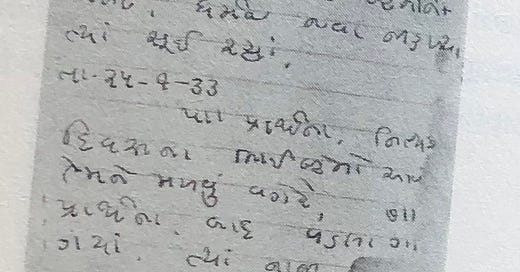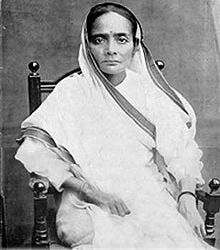A few years ago, a battered diary turned up in storage at the Kasturba Ashram. It belonged to Gandhi’s wife, Kasturba. This was a shocking discovery because her family had thought her illiterate. But, she wasn’t.
Kasturba’s great-grandson, Tushar Gandhi edited her diary. When he began the project, he met resistance from his family. They refused to believe it could have been written by her. But, as Tushar writes,
this is a diary written by a person who has limitations regarding the written language, and who utilizes the colloquial, spoken dialect of Kathiyavad, even while writing…1
Even if she wasn’t conventionally educated, Kasturba was not illiterate. In his autobiography, Gandhi claims that he wanted Kasturba to learn to read and write, but that his lust got in the way:
I had decided that my wife should learn reading and writing and that I should help her in her studies, but my lust came in the way and she had to suffer for my own shortcoming.2
It seems, however, that Gandhi found some time to teach Kasturba. And given his insistence on keeping a diary as a spiritual practice, it makes sense that Kasturba would keep one.
Like many wives and sisters before (and after her), Kasturba was instrumental to her husband’s success. She was an activist in her own right and an important accomplice to Gandhi’s political mission. As Gandhi writes in his weekly newspaper (which Kasturba records reading in her diary):
I learnt the lesson of non-violence from my wife when I tried to bend her to my will.3
The rest of this post is for paid subscribers. You can read my full essay on Gandhi for free here. If you value the time and energy that goes into Noted, please consider becoming a paid subscriber. You’ll get additional weekly content, and you’ll help keep this newsletter going! If you cannot afford a paid subscription but would like to read these postscripts, send me an email.
Keep reading with a 7-day free trial
Subscribe to Noted to keep reading this post and get 7 days of free access to the full post archives.





